From Working in Dubai to Starting 9 Footpath Schools in Ahmedabad, an Incredible Journey
Virat Shah, a resident of Ahmedabad, shows how children are capable of learning even in the middle of heat, dust and noise. All they need is someone willing to teach them.
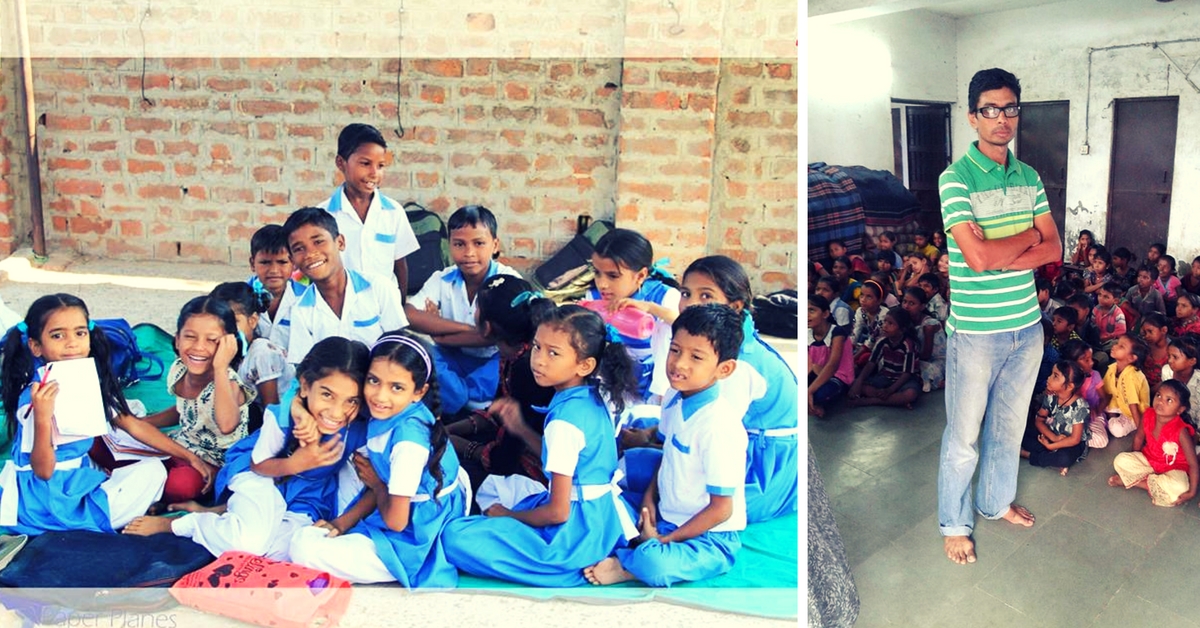
Virat Shah, a resident of Ahmedabad, shows how children are capable of learning even in the middle of heat, dust and noise. All they need is someone willing to teach them.
Picture a group of students sitting cross-legged on mats, attentively learning the alphabet and numbers from a teacher but otherwise oblivious to the cacophony around them. Where are they sitting, you wonder? On a footpath in Ahmedabad –unaffected by the bustling traffic, the never-ending noise, and the curious onlookers!
Founded by 45-year-old Virat Shah, this is one of nine Footpath School centres in the city, and over 200 students attend these schools each day.
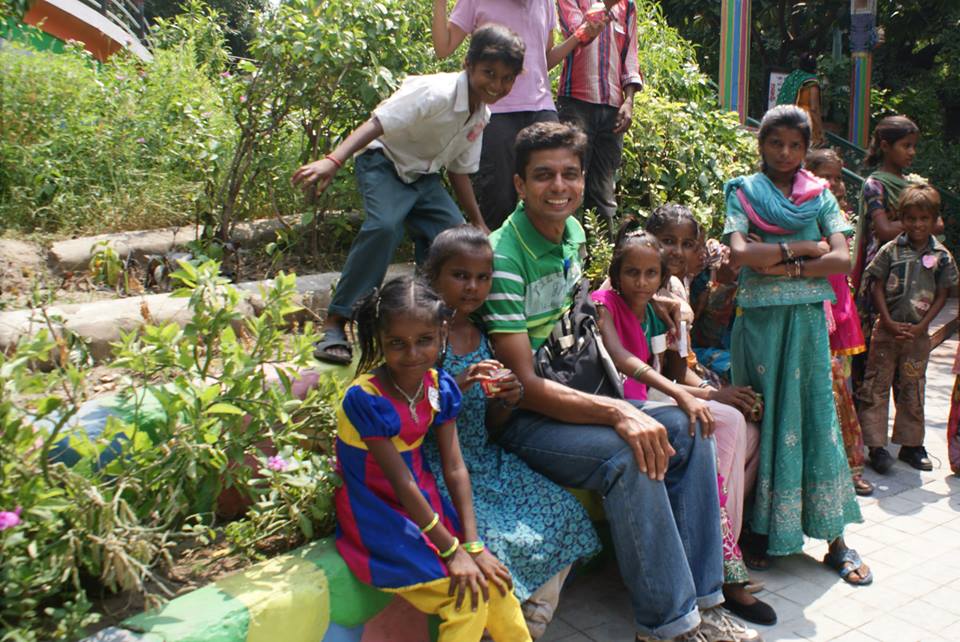
“Every time I saw kids on the roadsides during the daytime, I would always stop by to ask if they attend school. Most of them said no and I couldn’t stop thinking that this is their age to learn and grow. They should not be begging, rag picking, or wasting time like this,” says Virat, who is an engineer by qualification.
Virat was living in the Middle East and earning a comfortable salary of Rs. 3.5 lakh a month, but decided to move back in 2010. “Life was good,” he says. “But I had always wanted to do some social work and it was never in my plan to retire at 60 and then start doing what I always wanted to do.”
In the two years he took to settle down in Ahmedabad after returning to India, Virat came across many out-of-school children and decided he wanted to find a way of teaching them.
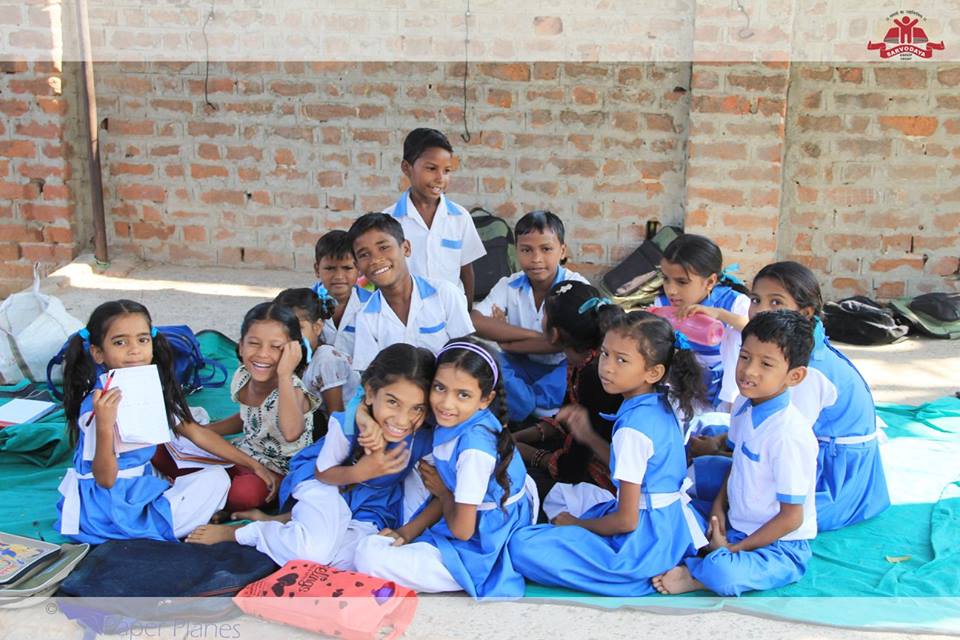
He started by teaching in a municipality school near his house to gain experience. Then, one day, on his way to drop his kids off at their school bus stop, he spotted some children loitering on a footpath. “Their parents told me they were facing problems getting their children admitted to school because they live on the footpath and don’t have any residential proof. Additionally, the kids didn’t have their birth certificates for admission. This was when an idea struck me and I asked them – ‘If I come to your footpath to teach these kids, will you send them to me?’ That was the first step. The fact that they were prepared to let me teach the kids motivated me to school them on the footpath itself,” says Virat.
This incident took place near the Isanpur Cross Road. He started the first centre in September 2012 by going to the footpath every day and gathering the students.
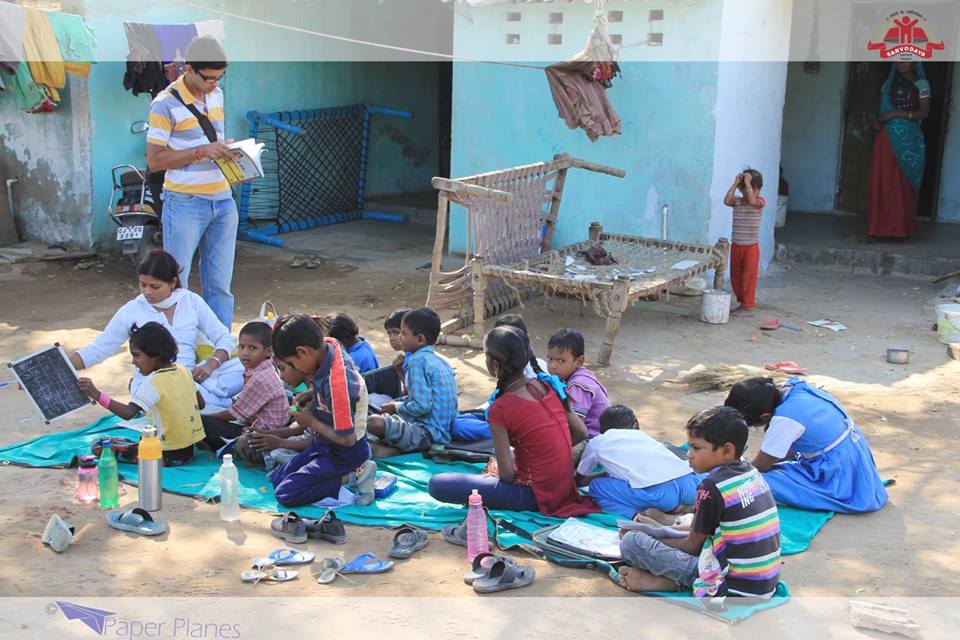
Initially, he would request some municipality schools to help him with books and mats. As he continued teaching, some passers-by would stop and inquire about the initiative. Many of them showed a willingness to contribute with money or voluntary support. “The first few things I purchased from their contributions were a nice mat for the children to sit on, slates, pens, notebooks, etc.”
In this way, what started as one centre with about 10 kids has now grown to over 200 children and nine centres. Virat has a team of six full-time teachers and six part-time volunteers who conduct classes for two hours every day. Virat teaches at some centres too, but he is currently concentrating more on hiring and training teachers, which is a difficult task because they have to sit on dusty, noisy footpaths, and teach.
Every centre is in the open – on a footpath, near the boundary wall of some office, or a raised platform under some tree.
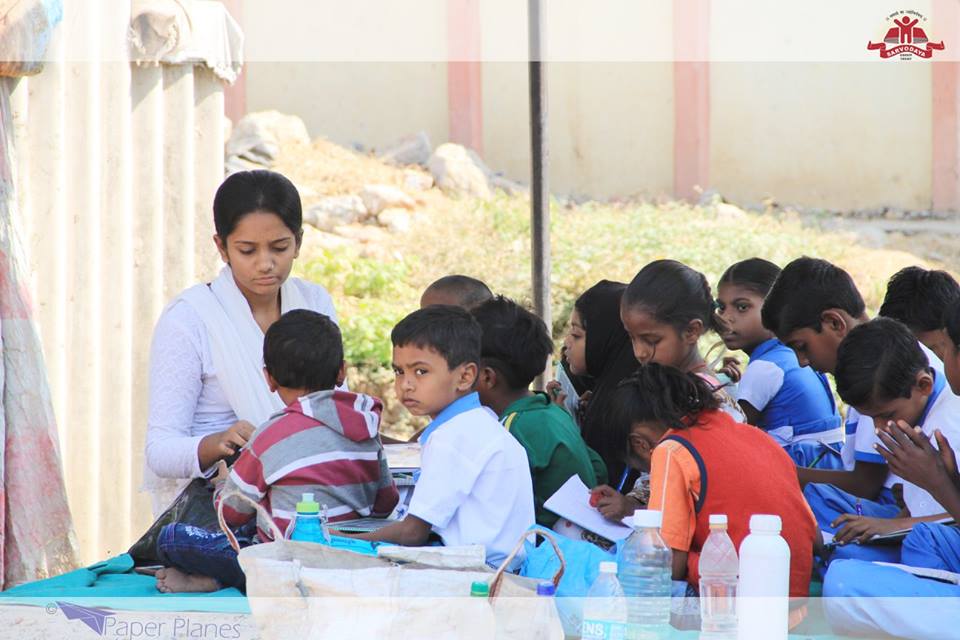
“I realised in the beginning itself that some of these kids know almost nothing. They did not know the alphabets or even the numbers 1-10. So I decided to focus on helping them get their basics right. According to me, 10% of the kids have graduated now, meaning, they know reading, writing and basic mathematics. For them, we have started a separate centre where they are given curriculum-based education. But all the others are learning just the basics, for which I design the syllabus myself,” says Virat.
The children are in the age group 5-14. Teachers have to maintain registers and track the progress of each child every 15 days, listing exactly what the child has learned in that time. To tackle the issue of absenteeism, whenever a kid is not present, his/her parents have to come to the school and a sign an application stating the reason. Virat says that he chose to open these schools on footpaths because kids were not ready to go to schools located even a little distance away from where they stay. But, despite the fact that they don’t have proper classrooms to sit in right now, he is trying to educate them in a way that they can integrate with mainstream schools in the future.
Virat has never worked anywhere else since he started the Footpath Schools. So, funding for expansion after the first centre was not easy.
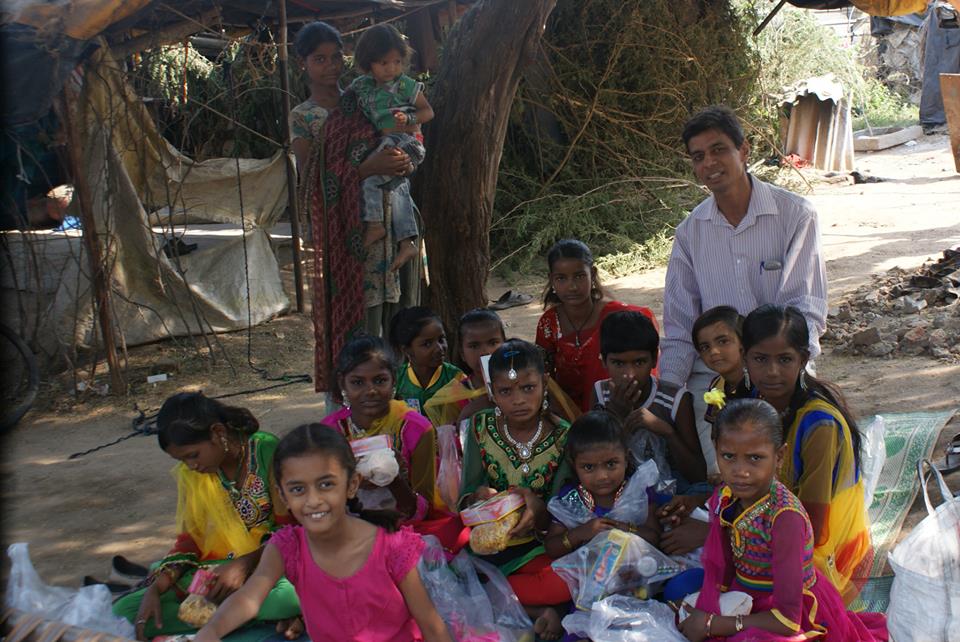
His friends suggested he start a trust and expand in an organised manner. Together, with six friends, he started the Sarvodaya Group Trust and the school now operates with the help of donations to the Trust.
“Jignesh, Viraj and Sameer are brothers. All three of them were not going to school before their father asked for help. Today, none of them misses school even for a day. Footpath Schools have helped change the overall environment for many of these children. Their parents are concerned about their education and now understand the importance of sending them to school,” concludes Virat, who wants to start a dedicated school for children living on footpaths in the future.
You can contact Virat by writing to him at [email protected].
Like this story? Or have something to share? Write to us: [email protected], or connect with us on Facebook and Twitter.
NEW: Click here to get positive news on WhatsApp!
If you found our stories insightful, informative, or even just enjoyable, we invite you to consider making a voluntary payment to support the work we do at The Better India. Your contribution helps us continue producing quality content that educates, inspires, and drives positive change.
Choose one of the payment options below for your contribution-
By paying for the stories you value, you directly contribute to sustaining our efforts focused on making a difference in the world. Together, let’s ensure that impactful stories continue to be told and shared, enriching lives and communities alike.
Thank you for your support. Here are some frequently asked questions you might find helpful to know why you are contributing?


This story made me
-
97
-
121
-
89
-
167











